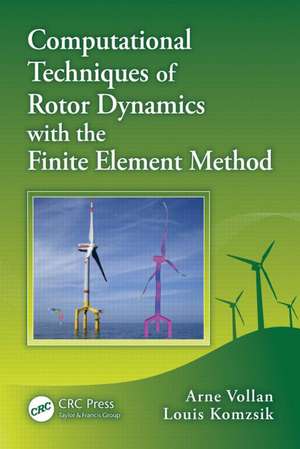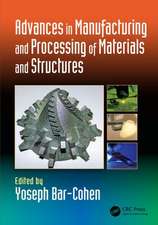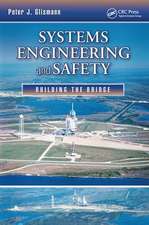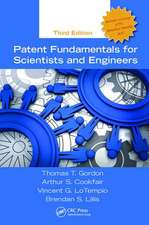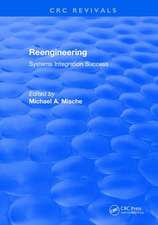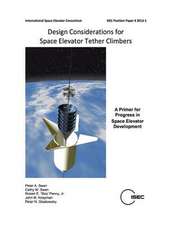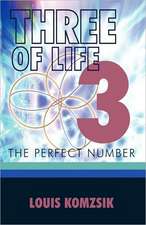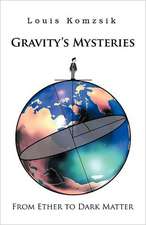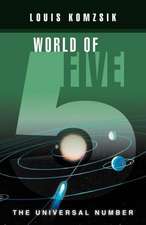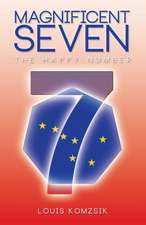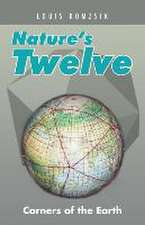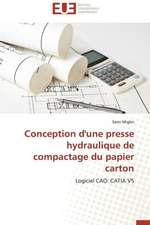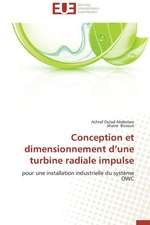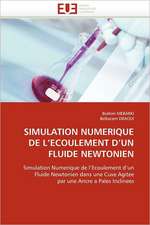Computational Techniques of Rotor Dynamics with the Finite Element Method: Computational Techniques of Engineering
Autor Arne Vollan, Louis Komzsiken Limba Engleză Hardback – 13 mar 2012
Computational Techniques of Rotor Dynamics with the Finite Element Method explores the application of practical finite element method (FEM)-based computational techniques and state-of-the-art engineering software. These are used to simulate behavior of rotational structures that enable the function of various types of machinery—from generators and wind turbines to airplane engines and propellers.
The book’s first section focuses on the theoretical foundation of rotor dynamics, and the second concentrates on the engineering analysis of rotating structures. The authors explain techniques used in the modeling and computation of the forces involved in the rotational phenomenon. They then demonstrate how to interpret and apply the results to improve fidelity and performance.
Coverage includes:
- Use of FEM to achieve the most accurate computational simulation of all gyroscopic forces occurring in rotational structures
- Details of highly efficient and accurate computational and numerical techniques for dynamic simulations
- Interpretation of computational results, which is instrumental to developing stable rotating machinery
- Practical application examples of rotational structures’ dynamic response to external and internal excitations
- An FEM case study that illustrates the computational complexities associated with modeling and computation of forces of rotor dynamics
- Assessment of propellers and turbines that are critical to the transportation and energy industries
CRC Press Authors Speak
Louis Komzsik introduces you to two books that share a common mathematical foundation, the finite element analysis technique. Watch the video.
| Toate formatele și edițiile | Preț | Express |
|---|---|---|
| Paperback (1) | 613.49 lei 6-8 săpt. | |
| CRC Press – 29 mar 2017 | 613.49 lei 6-8 săpt. | |
| Hardback (1) | 1385.39 lei 6-8 săpt. | |
| CRC Press – 13 mar 2012 | 1385.39 lei 6-8 săpt. |
Preț: 1385.39 lei
Preț vechi: 1689.50 lei
-18% Nou
Puncte Express: 2078
Preț estimativ în valută:
265.10€ • 283.48$ • 221.03£
265.10€ • 283.48$ • 221.03£
Carte tipărită la comandă
Livrare economică 18 aprilie-02 mai
Preluare comenzi: 021 569.72.76
Specificații
ISBN-13: 9781439847701
ISBN-10: 1439847703
Pagini: 296
Ilustrații: 469; 3 Tables, black and white; 210 Illustrations, black and white
Dimensiuni: 156 x 234 x 20 mm
Greutate: 0.57 kg
Ediția:1
Editura: CRC Press
Colecția CRC Press
Seria Computational Techniques of Engineering
ISBN-10: 1439847703
Pagini: 296
Ilustrații: 469; 3 Tables, black and white; 210 Illustrations, black and white
Dimensiuni: 156 x 234 x 20 mm
Greutate: 0.57 kg
Ediția:1
Editura: CRC Press
Colecția CRC Press
Seria Computational Techniques of Engineering
Public țintă
Academic and Professional Practice & DevelopmentCuprins
Part I: Theoretical Foundation of Rotor Dynamics
Introduction to Rotational Physics. Coupled Solution Formulations. Finite Element Analysis of Rotating Structures. Computational Solution Techniques. Numerical Solution Techniques.
Part II: Engineering Analysis of Rotating Structures
Resonances and Instabilities. Dynamic Response Analysis. A Finite Element Case Study. Analysis of Aircraft Propellers. Analysis of Wind Turbines.
Introduction to Rotational Physics. Coupled Solution Formulations. Finite Element Analysis of Rotating Structures. Computational Solution Techniques. Numerical Solution Techniques.
Part II: Engineering Analysis of Rotating Structures
Resonances and Instabilities. Dynamic Response Analysis. A Finite Element Case Study. Analysis of Aircraft Propellers. Analysis of Wind Turbines.
Notă biografică
Arne Vollan studied aeronautical engineering at the Technical University of Trondheim (Norway) and Aachen (Germany), and holds the degree Diplom Ingenieur. He was employed by several aeronautical companies such as VFW-Fokker (now Airbus), Helicopter Technik Muenchen, Dornier, Nationaal Lucht- en Ruimtevaartlaboratorium, and Pilatus Aircraft as a dynamic and aeroelastic specialist. He was also a consultant and developed programs for the analysis of rotating structures like wind turbines and propellers. Since 2002 he has been working at AeroFEM GmbH in Switzerland on rotor dynamics and the aeroelasticity of aircraft and large wind turbines.
Louis Komzsik is a graduate of the Technical University of Budapest with an engineering degree and the Eötvös University of Sciences in Budapest with a mathematics degree, and he holds a Doctorate from the Technical University of Budapest, Hungary. He was employed by the Hungarian Shipyards from 1972 to 1980 and worked at the McDonnell-Douglas Corporation in 1981 and 1982. He was the chief numerical analyst at the MacNeal-Schwendler (now MSC Software) Corporation for two decades. Since 2003 he has been the chief numerical analyst at Siemens PLM Software. For the past 30 years he has been the architect of the modern numerical methods of NASTRAN, the world’s leading finite element analysis tool in structural engineering.
Louis Komzsik is a graduate of the Technical University of Budapest with an engineering degree and the Eötvös University of Sciences in Budapest with a mathematics degree, and he holds a Doctorate from the Technical University of Budapest, Hungary. He was employed by the Hungarian Shipyards from 1972 to 1980 and worked at the McDonnell-Douglas Corporation in 1981 and 1982. He was the chief numerical analyst at the MacNeal-Schwendler (now MSC Software) Corporation for two decades. Since 2003 he has been the chief numerical analyst at Siemens PLM Software. For the past 30 years he has been the architect of the modern numerical methods of NASTRAN, the world’s leading finite element analysis tool in structural engineering.
Recenzii
Aeronautical engineers Vollan and Komzsik have worked in many companies designing rotors that blow wind or that wind turns and have cooperated on several projects over the past quarter century. From that collaboration, they explain how to apply modern analysis tools such as finite elements to the rotational behavior of flexible bodies …
—SciTech News, Vol. 66, September 2012
—SciTech News, Vol. 66, September 2012
Descriere
Applications of rotor dynamics are associated with important energy industry machinery, such as generators and wind turbines, as well as airplane engines and propellers. This book presents techniques that employ the finite element method for modeling and computation of forces associated with the rotational phenomenon. It examines practical computational techniques for simulating behavior of rotational structures and then using the results to improve fidelity and performance. The authors also discuss state-of-the-art engineering software used for computational simulation, including eigenvalue analysis techniques used to ensure numerical accuracy of the simulations.
